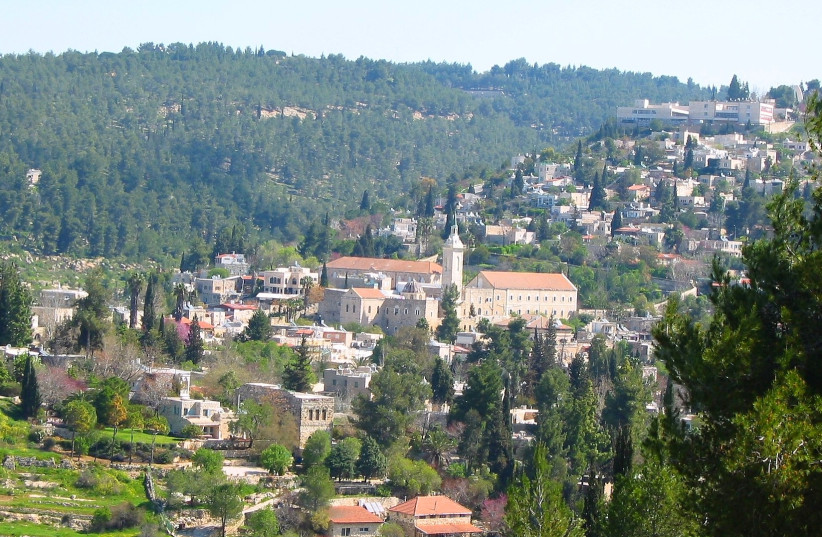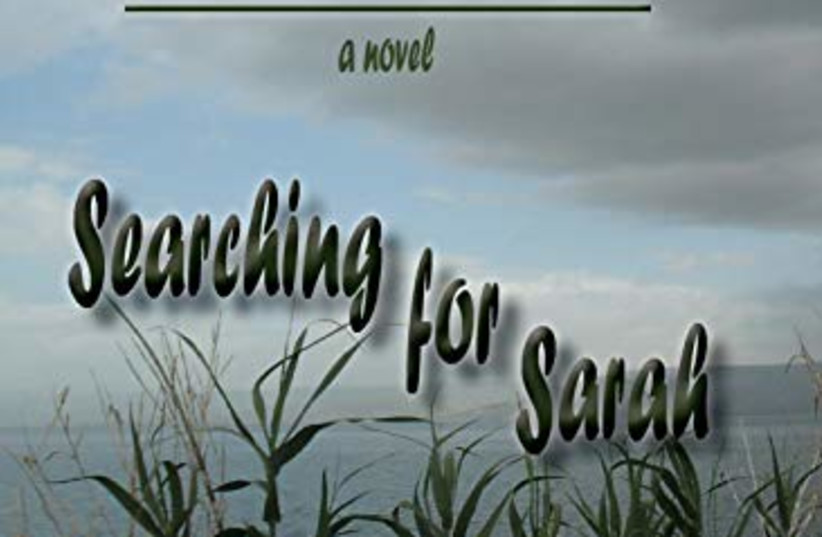A shaft of sunlight struck the balcony of Ruth’s Jerusalem apartment as she watered her dearly-loved plants… the scarlet geranium, the sprig of lavender, the purple African violet and her latest acquisition… a piece of jade, only one inch-high in its clay pot.
It was certainly unprepossessing – just a brown stem with one green leaf. Hardly worth the trouble to cultivate, except for one thing. Her sister had said: “You must grow this. It’s a magic plant.”
“What on earth do you mean?”
“You’ve never heard of it? It’s jade and it means ‘happiness in your home.’”
Ruth looked incredulous.
“I didn’t even know there WAS a plant called jade. Where did you hear such a superstition?”
Judith was evasive. “I think it came from China. But it’s true - if it flourishes, your home will always be happy. You just have to remember to keep it moist. Never let it dry out.”
They had been walking in Ein Kerem, a lovely village where the twenty-first century had not yet caught up. It was almost a Mediterranean scene – whitewashed villas set atop steep hills, with vines bearing fat melons climbing up the walls. The air was fragrant with rosemary and thyme, chamomile, sage and henna – the special perfume of a Jerusalem morning. Ruth had taken the cutting her sister broke off and put it in her bag. She would have forgotten about it completely except that the next morning Judith arrived with a small flower pot: “For your piece of jade.”
So she had planted it – two months ago. So much had happened and her sister’s holiday in Israel had come to an end. She was alone again with her children and her problems that each day seemed to grow in enormity,
Everything had gone wrong since she had left America seven years ago. Her husband had died tragically in an accident two years earlier, leaving her with little money and the two children – David now 14 and Rivka, aged 10. She could have returned to New York where there was some family to help her over the rough spots, and sometimes she yearned for the security of a familiar scene and people who talked like she did and thought like she did.
But she couldn’t go back, and even she was unable to explain it satisfactorily. Her husband had loved Israel, but her feelings had developed slowly. At first she’d bitterly resented the too-small apartment and the lack of amenities. The luxuries hadn’t been so hard to give up, but many necessities were forced to become luxuries too. There were the heartaches of learning a new language which still sounded strange on her lips, the pressure of changing from a Western to a Middle Eastern culture, the day-by-day incidents that somehow developed into insurmountable obstacles.
When her husband died, everyone assumed she would return home, and she had planned to do just that. Instead she found that she had become involved with life in Israel – it had happened so unobtrusively that she hadn’t even noticed. She loved to hear David and Rivka chattering away in Hebrew, and admired their independence and self-assurance that could only be attributed to their new country. But, most of all, she loved Jerusalem and could not for one moment envisage exchanging its beauty and spiritual atmosphere for any other city in the world.
The small indulgence with her plants had made her late for work. She rushed inside noticing immediately that David had gone to school without making his bed. Rivka was still toying with her cornflakes.
“Look at the mess in your brother’s room. Why didn’t you tell me?” she snapped. Rivka kept her eyes on her plate, but the tirade wasn’t finished. “It wouldn’t hurt you to help a bit more, either, Miss. When I was your age…”
The child didn’t wait to listen. She took her dishes dutifully to the kitchen, rinsed them and went to her room.
“Why isn’t your school bag ready? You know I always tell you to prepare everything the night before…”
The stream of complaints went on, Rivka not even bothering to try to stem them. She knew it would not do any good. Mummy never listened any more. She put on her coat and went to kiss her goodbye, but her mother was already running for the ‘bus, her soft brown hair streaming out behind her.

When she returned home from work, the two children were engaged in an argument that she heard even before she reached the door.
“If I catch you messing about with my belongings again, I’ll belt your brains in.”
Then Rivka’s whine: “I didn’t break anything. I don’t want your rotten things anyway…”
Ruth slammed the door, already feeling the familiar throbbing in the temples that heralded her migraine. The children became silent. She prepared dinner automatically, all the injustices of her life filling her mind until the tears spilled over. Dinner was a quiet meal. She sensed David watching her reflectively until she looked at him, when he would become absorbed pushing the food around on his plate. She remembered when he had so much to talk about with his father – they all had so much to talk about in those days.
The evening proceeded in the way that had become a familiar pattern- with herself nagging them about their homework and a whole series of their omissions - she never seemed to run out of complaints. They in turn listened without demur, escaping when possible to the world of television with its fictional happy families – a world replete with fathers and gaiety and loving relationships.
They were still watching when she went to bed. She felt too exhausted even to bid them good-night. She woke up suddenly hours later with a sense of apprehension. Zigzags of lightning rent the sky in two, the thunder rumbled ominously. Outside there was the noise of things crashing in the pouring rain.
At first she didn’t know why she was so frightened. Then she thought of her plants – perhaps the crash had been her flower-pots. Suddenly she remembered – her piece of jade. This might be the punishment for her coldness to her children, her lack of love and giving. If it lay bruised and broken on the balcony – such a fragile little plant – it might mean that there would never again be happiness in her home. Perhaps she had destroyed the chance forever.
Shivering, she pulled on her gown and slippers and made her way outside. The rain beat mercilessly on her face. She stumbled over something – no, just a fallen garden chair. With a breath of relief, she picked up her piece of jade in its red clay pot and took it inside where it would be safe from the storm. Then she made her way to to the children’s rooms, arranging the blankets gently around them.
Rivka smiled in her sleep, and Ruth bent to kiss her. David was awake.
“Some storm, eh Mum,” he said tentatively.
“It will soon be over,” she assured him.
She sat on his bed and rumpled his hair like Dad used to do. In the dark, and with his sister asleep, he didn’t seem to mind. After a minute, he put his arms around her, and locked together they cried out their sense of loss.
“I’m going to try harder,” she whispered to her son. “I know how terrible it is for you without Dad, and I’ve been making it even worse.”
“It’s alright Mum,” he whispered softly. “I’ll look after you.”
The storm abated during the night, and Ruth awoke to dappled golden sunshine. She got up to prepare breakfast. The piece of jade stood on her coffee table. Something about it was different. Ruth caught her breath. Tremulously, she bent to touch it.
The little plant had braved the storm and had unfurled its flag of victory – one new leaf!

The writer is the author of 14 books. Her latest novel is ‘Searching for Sarah.’ Dwaysman@gmail.com
